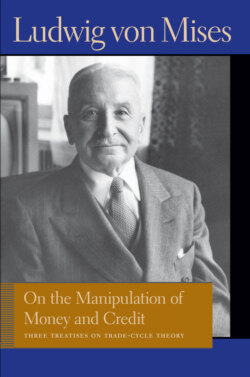Читать книгу On the Manipulation of Money and Credit - Людвиг фон Мизес - Страница 23
На сайте Литреса книга снята с продажи.
3. War Reparations
ОглавлениеThe decisive factor for the German economy is obviously the payment of the reparations burden imposed by the Treaty of Versailles and its supplementary agreements. According to Karl Helfferich,1 these payments imposed on the German people an annual obligation estimated at two-thirds of their national income. This figure is undoubtedly much too high. No doubt, other estimates, especially those pronounced by French observers, considerably underestimate the actual ratio. In any event, the fact remains that a very sizeable portion of Germany’s current income is consumed by the levy imposed on the nation, and that, if the specified sum is to be withdrawn every year from income, the living standard of the German people must be substantially reduced.
Even though somewhat hampered by the remnants of feudalism, an authoritarian constitution and the rise of statism and socialism, capitalism was able to develop to a considerable extent on German soil. In recent generations, the capitalistic economic system has multiplied German wealth many times over. In 1914, the German economy could support three times as many people as a hundred years earlier and still offer them incomparably more. The war and its immediate consequences have drastically reduced the living standards of the German people. Socialistic destruction has continued this process of impoverishment. Even if the German people did not have to fulfill any reparations payments, they would still be much, much poorer than they were before the war. The burden of these obligations must inevitably reduce their living standard still further—to that of the thirties and forties of the last century. It may be hoped that this impoverishment will lead to a reexamination of the socialist ideology which dominates the German spirit today, that this will succeed in removing the obstacles now preventing an increase in productivity, and that the unlimited opening up of possibilities for development, which exist under capitalism and only under capitalism, will increase many times over the output of German labor. Still the fact remains that if the obligation assumed is to be paid for out of income, the only way is to produce more and consume less.
A part of the burden, or even all of it, could of course be paid off by the export of capital goods. Shares of stock, bonds,2 business assets, land, buildings, would have to be transferred from German to foreign ownership. This would also reduce the total income of the people in the future, if not right away.
